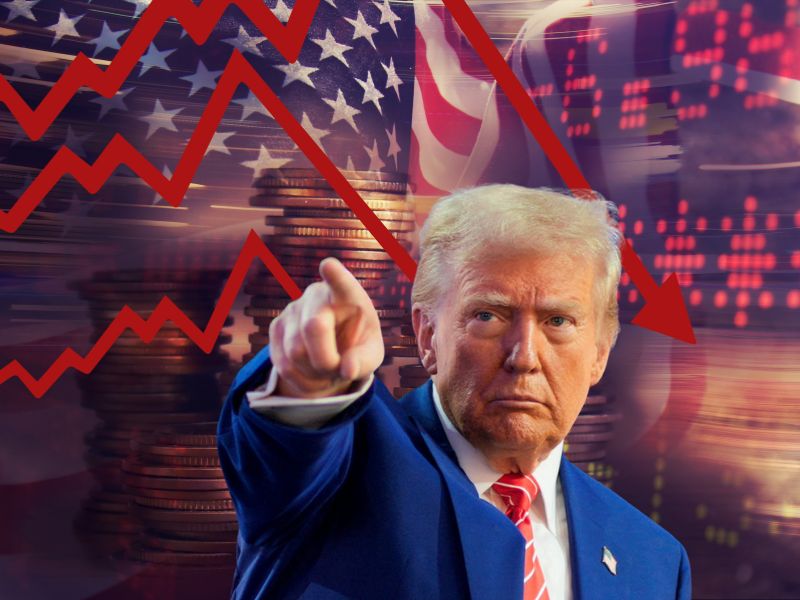The US stock market suffered a major blow as Trump tariffs impact stock market prices, triggering a widespread sell-off. The Dow Jones Industrial Average tumbled 724 points (2.9%), marking its worst one-day drop in months. Investors reacted negatively to the new trade restrictions, fearing rising costs, supply chain disruptions, and potential retaliation from China and the European Union.
US Stock Market Reaction to Trump’s Tariffs
The S&P 500 and Nasdaq Composite also saw steep declines, with tech, manufacturing, and retail stocks leading the losses. Major US companies such as Apple, Boeing, and Caterpillar faced sharp declines due to their reliance on foreign markets and imported materials.
- Apple Inc. dropped 9.1%, as investors worried about higher costs for components sourced from China.
- Boeing shares slid 5.6%, amid concerns over tariffs on aircraft parts.
- Caterpillar fell 4.8%, as the construction sector faced higher raw material costs.
Financial analysts warned that Trump’s tariffs impact the US stock market by creating uncertainty for businesses and consumers. Companies that depend on international trade and supply chains are at the highest risk.
Tech Stocks Take a Hit
The technology sector, which plays a crucial role in the US stock market, was one of the worst affected. Giants like Amazon, Meta, and Microsoft all saw declines. Semiconductor stocks, including Nvidia and AMD, dropped sharply as they rely heavily on overseas manufacturing.
Oil Prices Fall as Economic Worries Grow
Even though energy products were not included in the new tariffs, oil prices fell by 7%, with Brent crude settling at $69.73 per barrel. The drop reflects concerns that Trump’s trade policies could slow down global economic growth, reducing demand for oil and energy products.
Inflation & Stagflation Fears Rise
Economists are increasingly worried about stagflation, a scenario where inflation rises while economic growth slows. Higher tariffs mean higher prices for consumers, potentially leading to reduced spending and business investment.
What’s Next for the US Stock Market?
Market experts are watching for potential retaliation from China and the EU, which could further shake investor confidence. The Federal Reserve may also adjust its monetary policy if economic conditions worsen.
As Trump’s tariffs impact the US stock market, investors should prepare for continued volatility in the coming weeks. Analysts recommend caution, with many advising investors to monitor corporate earnings and economic indicators before making major financial moves.

